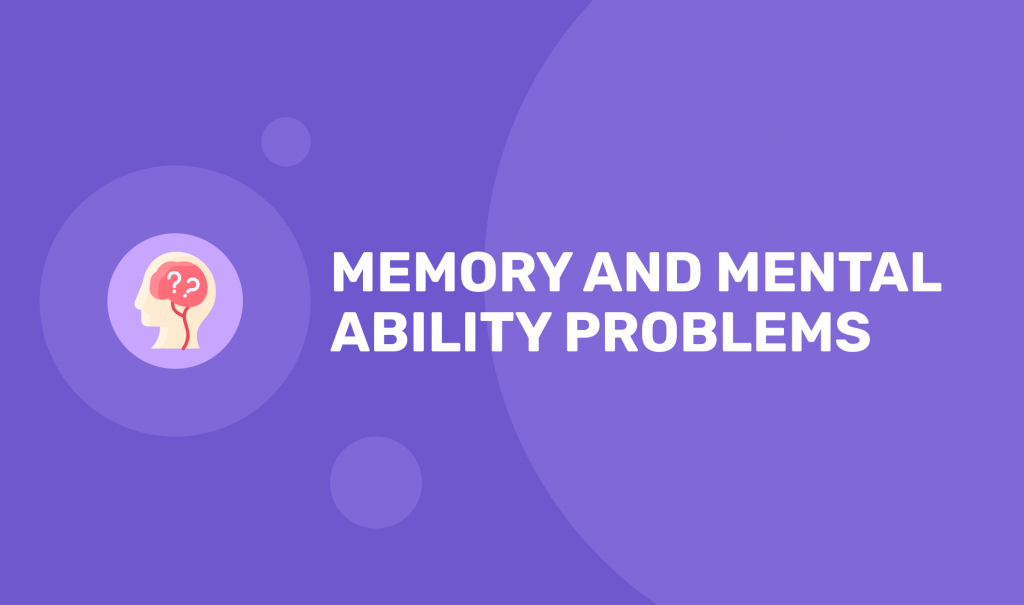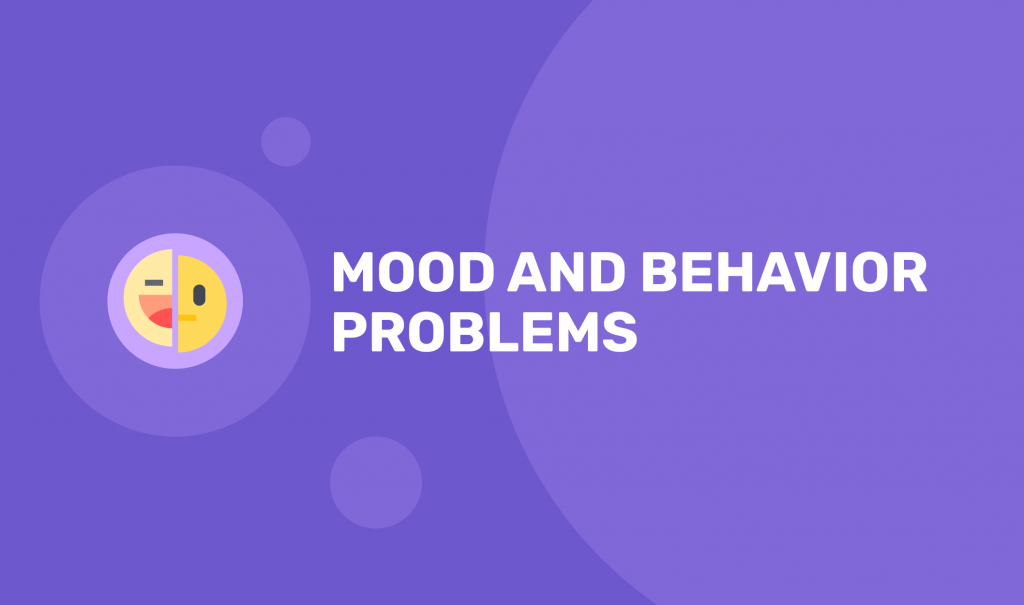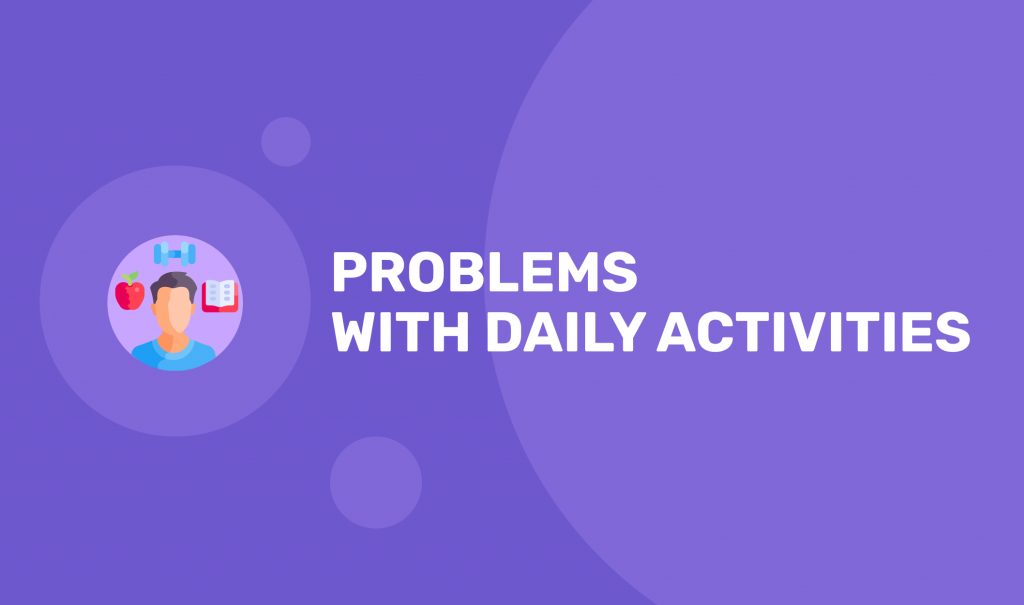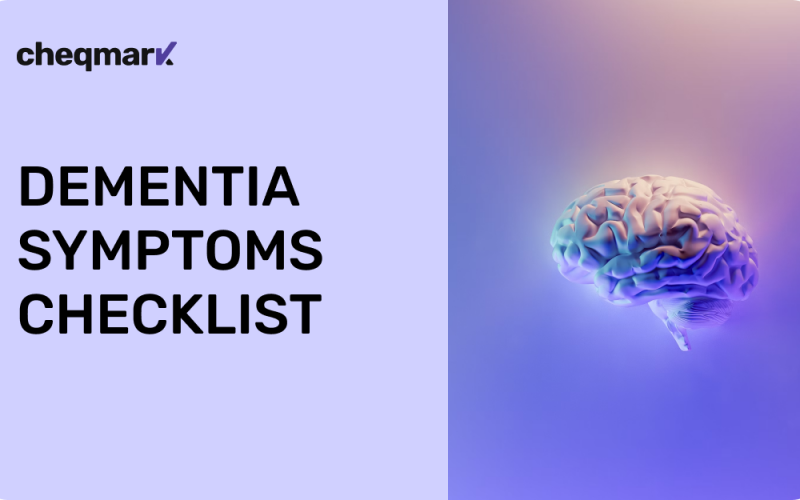Recognizing the early signs of dementia can be crucial because if it is diagnosed and treated promptly, there is a chance that the disease that harms the brain will be less severe. In this article, we’ve put together a list of the early signs of dementia. You can also print and complete the dementia symptoms checklist and then take it with you when you visit your GP to describe your symptoms.
Why checking symptoms of dementia is crucial?
The loss of cognitive abilities, such as thinking, remembering, and reasoning, to the point where it affects a person’s day-to-day functioning, is known as dementia. Some dementia patients struggle to control their emotions, and their personalities may shift. Dementia can range in intensity from the earliest stages, when it is only beginning to impair a person’s functioning, to the most advanced stages, when the individual is wholly dependent on others to perform even the most basic tasks.
It’s crucial to identify symptoms of dementia as soon as possible because some cases are treatable. The etiology of dementia, however, is frequently unknown and can’t be cured. Even so, getting a diagnosis early might help with controlling the condition and making plans ahead.
The difference between age-related changes and dementia symptoms
Many elderly people are concerned about their memory and other cognitive abilities. For instance, they might worry that learning new things would take longer than it used to, or they might occasionally forget to pay a bill. These changes typically signal minor forgetfulness, which is frequently a marker of aging and not a sign of major memory issues.
What distinguishes a major memory issue from regular, age-related forgetfulness? As we get older, it’s common to occasionally forget things, but severe memory issues make it difficult to carry out daily tasks like driving, using the phone, and even finding your home.
Dementia checklist
If you or someone you care about is showing any of these warning signs of dementia, please visit a doctor to determine the cause. A chance to seek treatment and make future plans is provided by an early diagnosis.
Memory and mental ability problems

- Forgetting things
The retelling of stories and repeatedly asking for the same information are two of the most recognizable dementia memory loss signs.
- Losing track of time
People with dementia are prone to forgetting times, seasons, and dates. If something doesn’t happen right away, they could have problems understanding it. They might occasionally lose track of their whereabouts or how they got there.
- Not finding the right word
Communication and language issues are among the most prevalent dementia signs. This could involve finding it difficult to participate in or follow a discussion. It could also mean pausing mid-sentence without knowing how to proceed.
- Struggling to make decisions
Dementia might make it challenging for a person to comprehend what is fair and reasonable. This could imply that they overpay for items or make unnecessary purchases.
- Repeating questions and phrases
No matter how many times you give them the answer, elderly people with dementia could keep asking the same questions. Additionally, they could repeat phrases, sentences, or whole stories.
- Putting things in unusual places
The official list of observations for early dementia symptoms includes things like losing items or putting them in odd locations and then being unable to follow previous steps to find them again. Other people may occasionally be accused of stealing, and this may happen more frequently with time. For instance, your relative might swear that a friend is continuing to take his money even though it is in its usual hiding place.
Mood and behavior

- Easily getting sad, aggressive, irritated
Patients with dementia frequently become angry due to how we treat them. It’s simple for us to annoy them without even realizing it.
- Feeling of sadness/hopelessness
People with dementia may suffer from significant depression, which can drain their energy and make them feel hopeless.
- Feeling of anxiety or worry
Anxiety is a prevalent condition among patients with dementia. It can even worsen dementia symptoms, especially those that impair a person’s ability to pay attention, plan, organize, and make decisions.
- Losing interest in things they liked before
A person with dementia may develop apathy and therefore be less motivated to do things.
- Acting inappropriately
For example, a person with dementia might make offensive remarks about another person’s appearance. They appear to have lost their sense of propriety and sometimes act as though they are intentionally harassing or embarrassing the other person.
Problems with daily activities

- Feeling restless
People with dementia frequently exhibit signs of restlessness, including fidgeting, pacing, and attempting to leave the house.
- Struggling with shopping, paying bills, and other simple things
Some dementia sufferers may struggle to follow a routine recipe or remember to pay their bills on time. They can have trouble focusing and work considerably more slowly than they did in the past.
- Not getting enough sleep
Individuals with dementia are frequently affected by sleep disorders. These may include restless legs syndrome, sleep apnea, sleep behavior disorder, and more.
- Getting lost in familiar places
Dementia patients tend to become less able to identify familiar surroundings and faces. A person frequently wanders, gets lost, or is unsure of where they are, and this can happen at any stage of the disease.
Is it possible to prevent dementia?
As experts continue to look at how the disorder develops, there is no surefire technique to prevent all forms of dementia. However, there is strong evidence that living a healthy lifestyle can lower your risk of dementia as you age. Recommendations include keeping a healthy weight while eating a nutritious, balanced diet, daily exercise and abiding by the appropriate alcohol intake limits, giving up smoking, and maintaining a good blood pressure level.
Useful links
- Assessment process and tests for dementia
- Dementia guide by HNS
- Dementia Road Map: A Guide for Family and Care Partners.
Conclusion
It’s crucial to be aware of the dementia warning symptoms so you can ensure an early diagnosis, whether you’re worried for yourself or someone you care about. Take the time to print and complete the dementia symptoms checklist and then take it with you when you visit your GP to describe your symptoms. Stay healthy!


